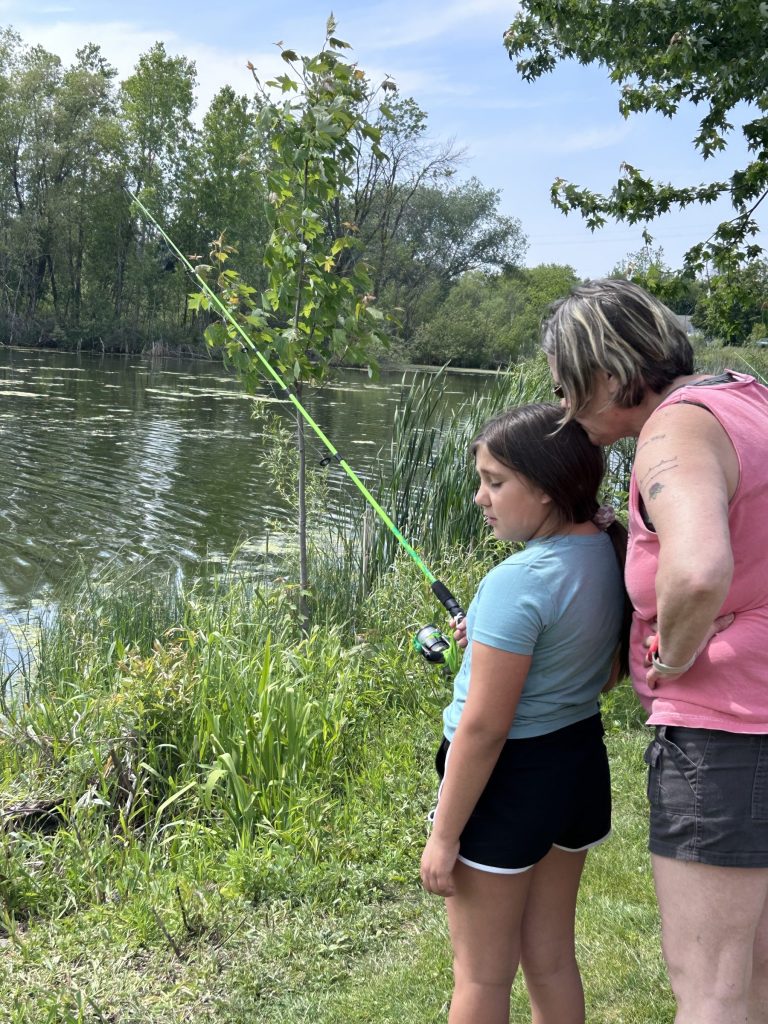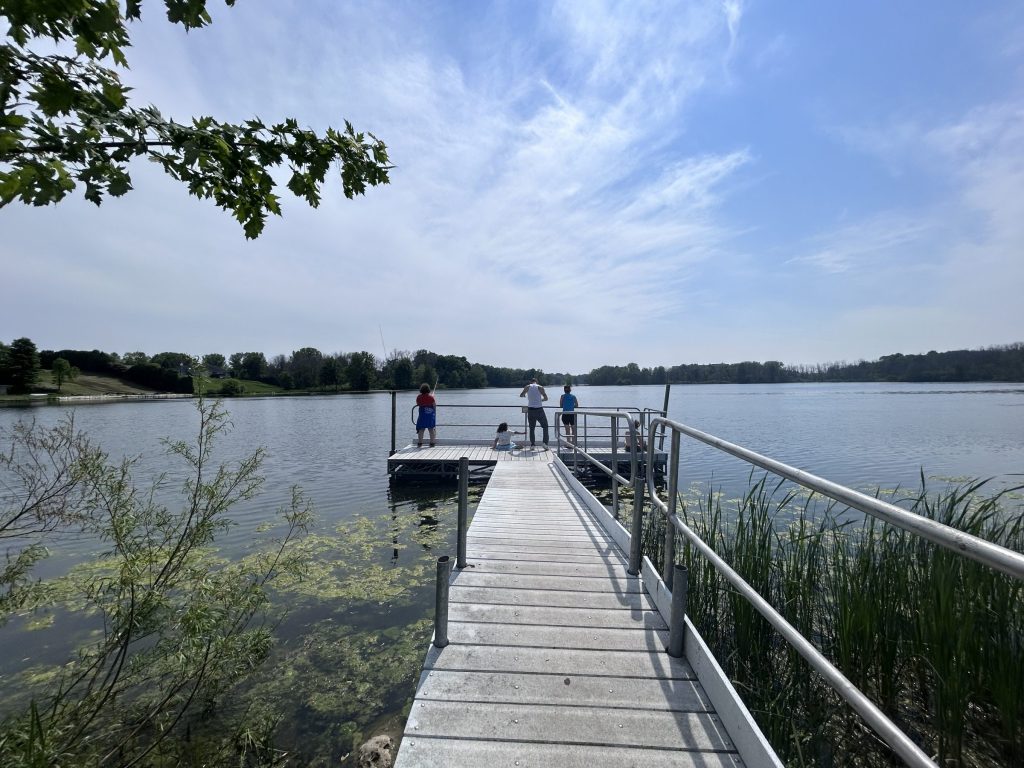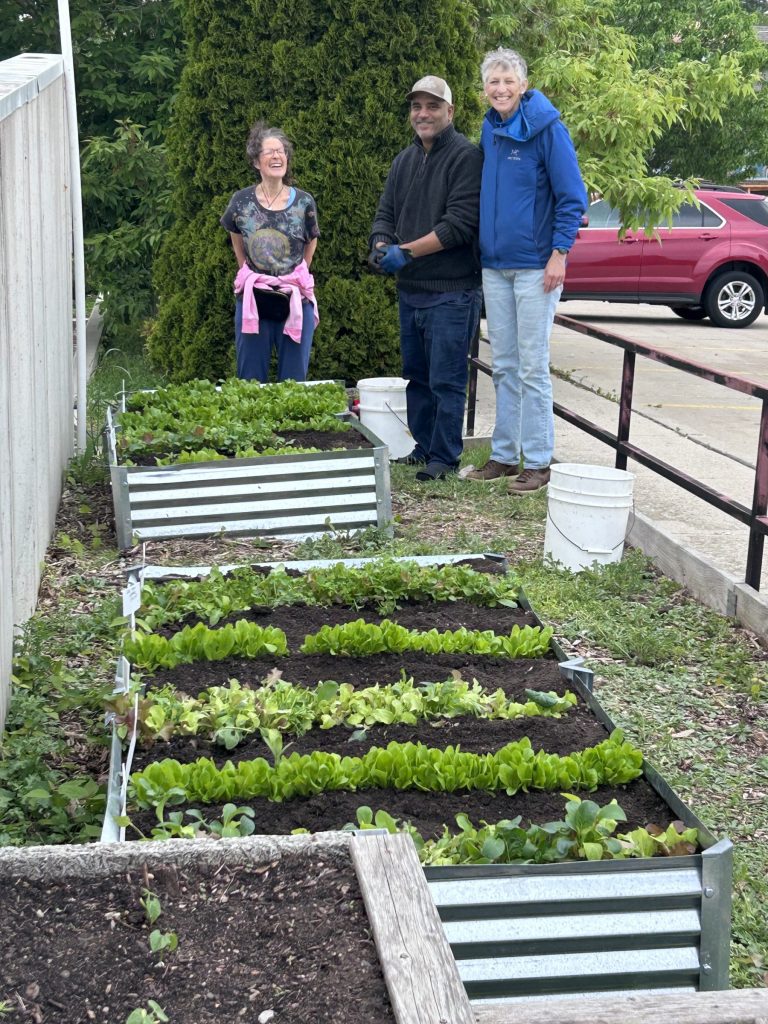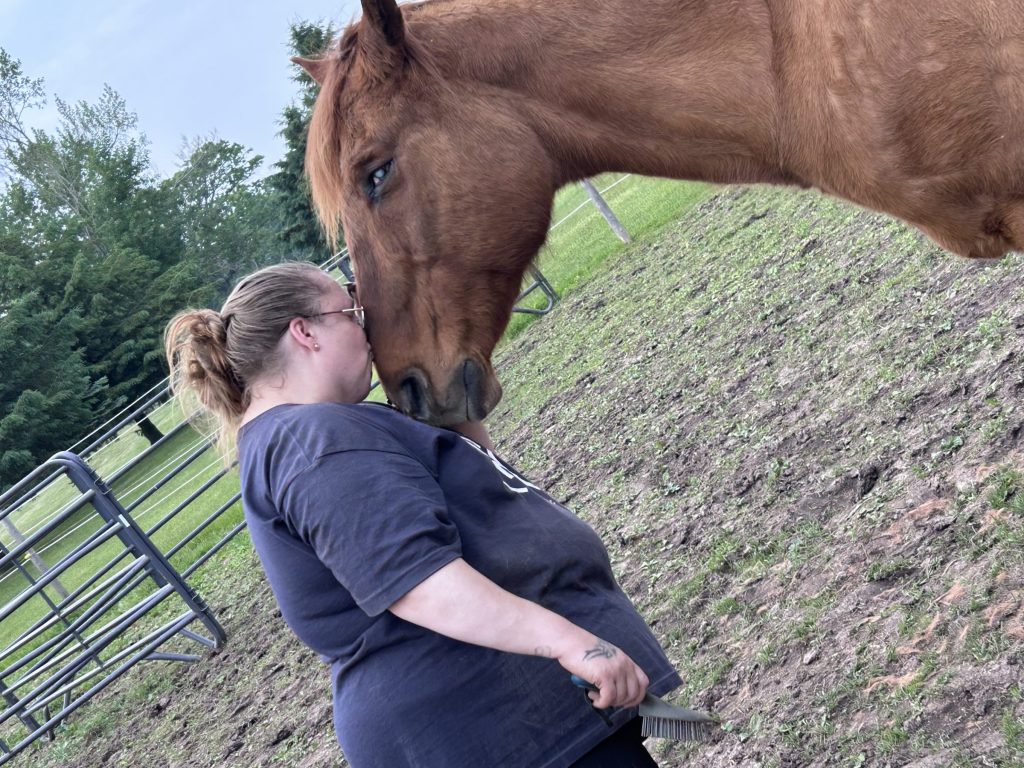/
Great Lakes Rural Opioid Technical Assistance-Regional Center
/
Thriving Together: Empowering Adults
Thriving Together: Empowering Adults through Nature, Connection, and Self Care in Manitowoc County
CHALLENGE
Early recovery can be an isolating and vulnerable time. In Manitowoc County, people living in sober living homes often face barriers such as limited income, lack of transportation, and few affordable ways to engage in healthy activities. Peer support specialists and recovery coaches, many of whom are also in recovery, take on demanding roles supporting others in crisis and often have little time or resources for self-care.
Although the community has built momentum around recovery-friendly workplaces, drug court support, and peer-led organizations like Lighthouse Recovery Community Center (LRCC), there was still a need for low-cost, low-barrier opportunities that foster connection, reduce stress, and support long-term recovery.
APPROACH
Extension educator Cath Tease partnered with Lighthouse, several sober living homes and local businesses to create a series of nature-based and self-care activities. Supported by two mini-grants from the Health and Well-Being Institute’s Rural Opioid Technical Assistance-Regional Center (ROTA-RC) project, the effort combined outdoor engagement with stress reduction tools.
One grant focused on connecting people in early recovery with nature through group hikes, gardening, stargazing, sober swim events, and family fishing days. These activities promoted healthy alternatives to substance use while reducing financial barriers. A second grant offered breathwork and yoga sessions for peer specialists and recovery coaches – structured time to recharge, reflect, and build resilience against burnout.
At Lighthouse, grant activities were proudly guided by teams of individuals with lived experience through weekly Peer Advisory Council (PAC) meetings, fostering meaningful connections among those in recovery and their natural supports, while community donations helped provide food at events and despite transportation being identified as the greatest barrier, these efforts demonstrated the power of collaboration and resilience.
RESULTS
Across all activities, the project engaged more than 420 participants. This included:
- 149 people attending three sober swim events.
- 91 adults maintaining 16 community garden beds.
- 48 participants completing 90-minute breathwork sessions.
- 13 adults attending multi-session yoga classes.
- 29 people joining a free family fishing day with provided gear.
Participants described the experiences as “life-changing,” “freeing,” and essential to their recovery. Reported outcomes included reduced anxiety, improved confidence, and increased social connection. Focus group findings revealed gains across all eight dimensions of well-being: emotional, social, physical, environmental, spiritual, financial, intellectual, and occupational. A summer barbecue and volleyball event drew over 120 people, and drug court judges noted participants discussed these activities during check-ins, a sign of meaningful engagement.
IMPACTS
The project demonstrated that small, community-based investments can have large ripple effects. By centering connection, joy, and accessibility, these ROTA-funded programs helped individuals and peer professionals build stability and purpose. As participants reflected, “Connection is the opposite of addiction.”









